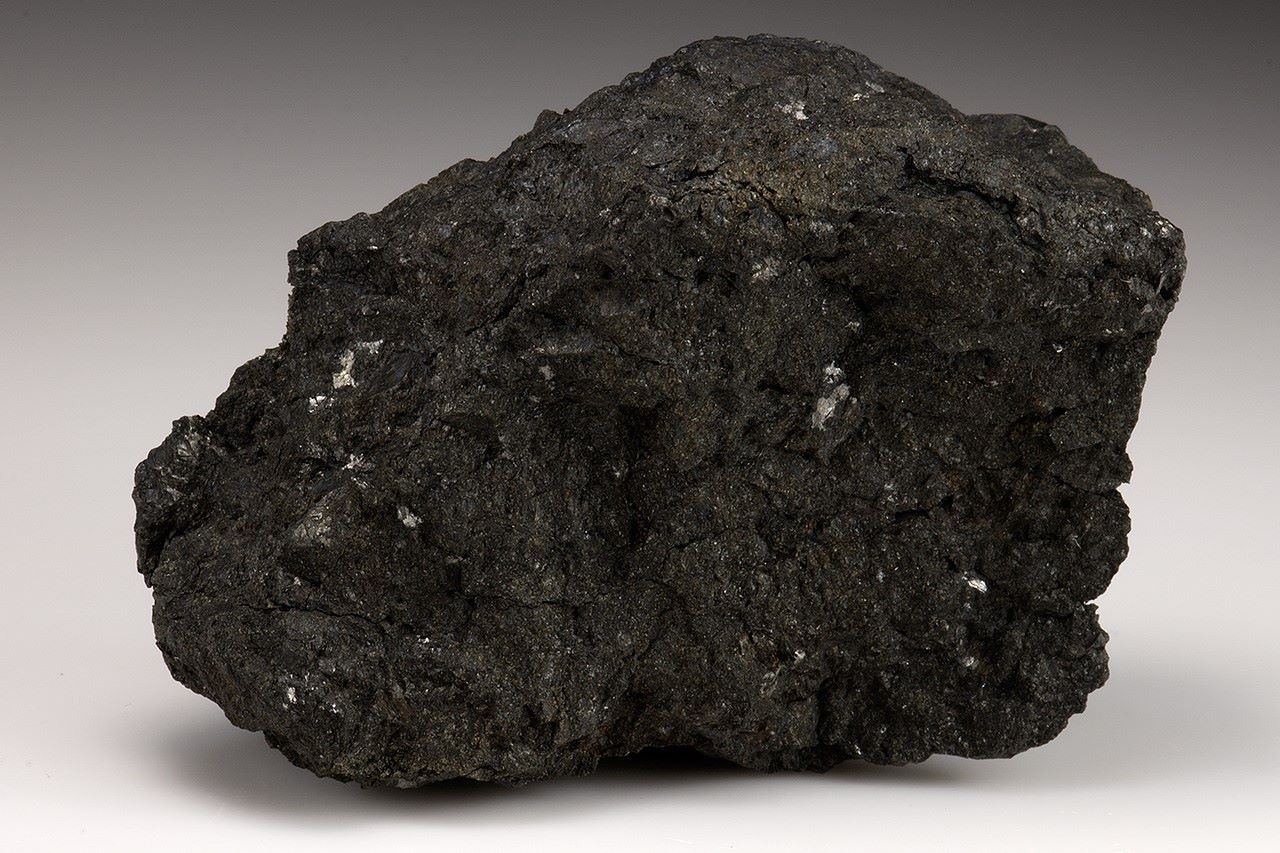
What is Mackinawite? Mackinawite is a fascinating mineral with a unique structure and composition. Composed primarily of iron and sulfur, it forms under specific conditions, often in hydrothermal vents or as a result of bacterial activity. This mineral is known for its metallic luster and grayish-black color. Mackinawite's crystal structure is layered, making it distinct from other iron sulfides. Its significance extends beyond geology; it plays a crucial role in various industrial applications, including catalysis and environmental remediation. Understanding Mackinawite can provide insights into early Earth conditions and the processes that shaped our planet. Intrigued by minerals? Keep reading to uncover 30 fascinating facts about Mackinawite!
Key Takeaways:
- Mackinawite, a unique iron-nickel sulfide, has magnetic and superconductive properties. It's found in anoxic environments and has potential uses in environmental remediation, technology, and even astrobiology.
- Named after Mackinaw City, Mackinawite is a fascinating mineral with a tetragonal crystal structure. It's valuable in fields like battery technology, carbon capture, and gold deposit formation.
What is Mackinawite?
Mackinawite is a fascinating mineral with unique properties. It's a type of iron-nickel sulfide that has intrigued scientists and geologists for years. Let's dive into some interesting facts about this mineral.
-
Mackinawite is named after Mackinaw City in Michigan, where it was first discovered.
-
This mineral has a tetragonal crystal structure, which means its crystals form in a shape that resembles a stretched cube.
-
Mackinawite is often found in hydrothermal vents on the ocean floor, where hot water rich in minerals spews from the Earth's crust.
-
It has a metallic luster, giving it a shiny, reflective appearance.
-
Mackinawite is typically black or dark gray in color.
Chemical Composition and Properties
Understanding the chemical makeup of Mackinawite can help explain its unique characteristics and uses.
-
The chemical formula for Mackinawite is (Fe,Ni)₉S₈, indicating it contains both iron and nickel.
-
Mackinawite is known for its magnetic properties, which make it useful in various technological applications.
-
This mineral is a superconductor at very low temperatures, meaning it can conduct electricity without resistance.
-
Mackinawite can form under low-temperature conditions, often in sedimentary environments.
-
It is unstable in the presence of oxygen and can quickly transform into other minerals like pyrite or marcasite.
Uses and Applications
Mackinawite's unique properties make it valuable in several fields, from environmental science to technology.
-
Mackinawite is used in environmental remediation to remove heavy metals from contaminated water.
-
Its magnetic properties make it useful in the development of magnetic storage devices.
-
Mackinawite is studied for its potential in catalysis, helping to speed up chemical reactions.
-
It plays a role in the formation of other sulfide minerals, acting as a precursor in various geological processes.
-
Mackinawite is also of interest in the field of astrobiology, as it may provide clues about the conditions necessary for life on other planets.
Formation and Occurrence
The formation and natural occurrence of Mackinawite are as intriguing as its properties.
-
Mackinawite forms in anoxic environments, where oxygen is absent or very limited.
-
It is commonly found in sedimentary rocks, particularly those rich in organic material.
-
Mackinawite can also form in volcanic fumaroles, where volcanic gases escape through vents in the Earth's surface.
-
This mineral is often associated with other sulfide minerals like pyrrhotite and chalcopyrite.
-
Mackinawite has been discovered in meteorites, suggesting it can form in extraterrestrial environments.
Research and Discoveries
Ongoing research continues to reveal new insights into Mackinawite and its potential applications.
-
Scientists are exploring the use of Mackinawite in battery technology for more efficient energy storage.
-
Mackinawite is being studied for its role in the biogeochemical cycling of sulfur and iron.
-
Researchers are investigating how Mackinawite can be used to capture and store carbon dioxide, helping to mitigate climate change.
-
Mackinawite has been found to play a role in the formation of gold deposits, making it of interest to the mining industry.
-
Studies have shown that Mackinawite can influence the corrosion of steel, which is important for infrastructure and construction.
Fun and Lesser-Known Facts
Here are some fun and lesser-known tidbits about Mackinawite that might surprise you.
-
Mackinawite can be synthesized in the lab, allowing scientists to study its properties in controlled conditions.
-
The mineral is named after Mackinaw City, but it has been found in many other locations worldwide.
-
Mackinawite has a relatively low hardness, making it softer than many other minerals.
-
Despite its metallic luster, Mackinawite is not used in jewelry due to its instability.
-
Mackinawite has been found in ancient sedimentary rocks, providing clues about the Earth's early environment.
Mackinawite's Marvels
Mackinawite, a fascinating iron-nickel sulfide mineral, holds a treasure trove of intriguing facts. From its unique crystal structure to its role in early Earth chemistry, this mineral offers a glimpse into the planet's ancient past. Its ability to form under low-temperature conditions makes it a key player in understanding hydrothermal vent systems and the origins of life. Scientists continue to study mackinawite for its potential applications in environmental remediation and energy storage. Whether you're a geology enthusiast or just curious about the natural world, mackinawite's story is a testament to the wonders hidden beneath our feet. Keep exploring, and who knows what other secrets the Earth has yet to reveal?
Frequently Asked Questions
Was this page helpful?
Our commitment to delivering trustworthy and engaging content is at the heart of what we do. Each fact on our site is contributed by real users like you, bringing a wealth of diverse insights and information. To ensure the highest standards of accuracy and reliability, our dedicated editors meticulously review each submission. This process guarantees that the facts we share are not only fascinating but also credible. Trust in our commitment to quality and authenticity as you explore and learn with us.
